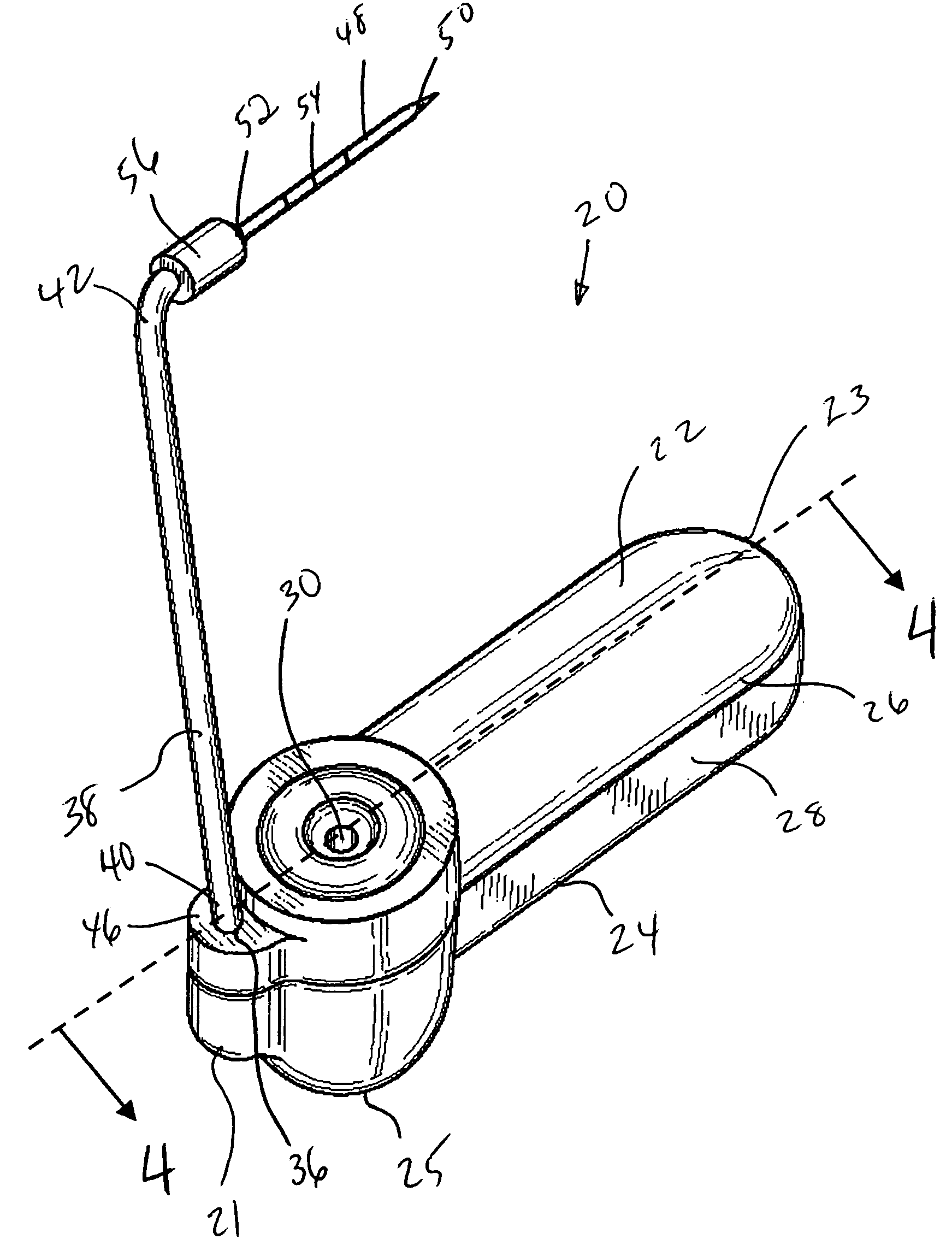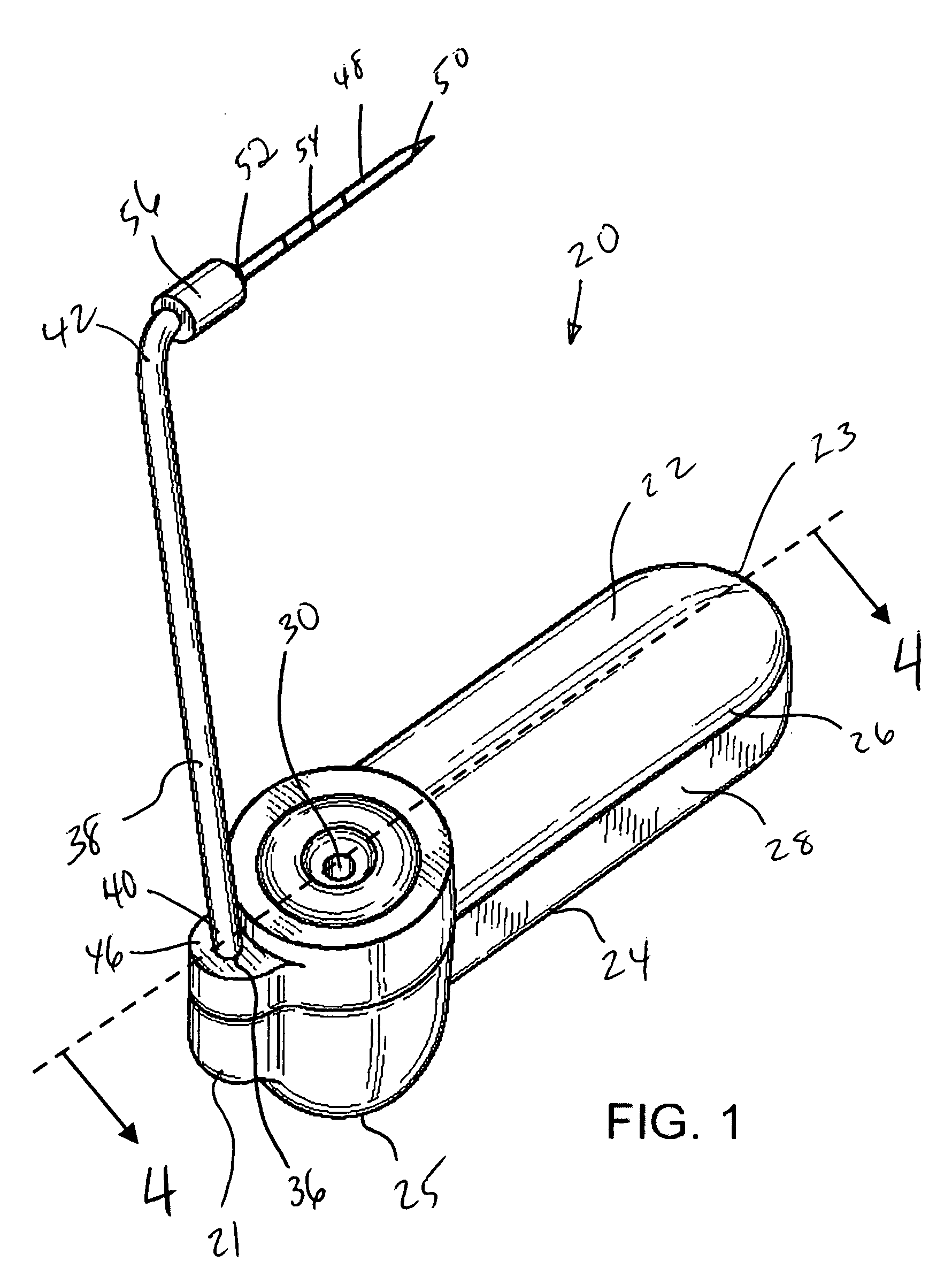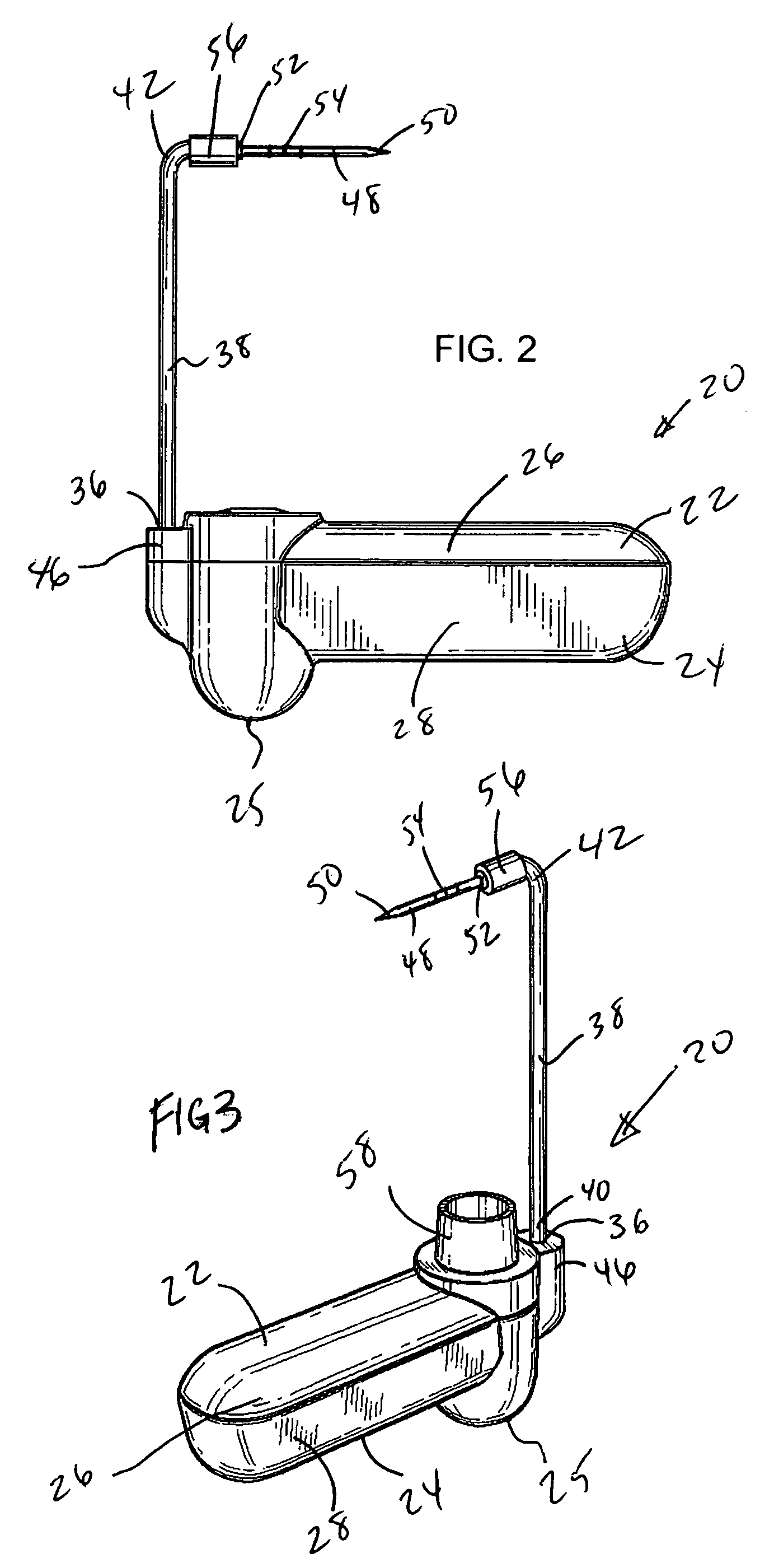Integrated theft deterrent device
a technology of theft deterrent device and integrated security tag, which is applied in the direction of burglar alarm mechanical actuation, lock application, instruments, etc., can solve the problems of pin bending, easy defeat of unscrupulous individuals by subjecting the tag, pin bending, etc., to reduce the risk of work place injury, and reduce labor time and costs during the attachment of the tag body to an obj
- Summary
- Abstract
- Description
- Claims
- Application Information
AI Technical Summary
Benefits of technology
Problems solved by technology
Method used
Image
Examples
Embodiment Construction
[0030] Referring now to FIGS. 1, 2 and 4, a tag 20 is illustrated having a first half 22 and a second half 24. First and second halves 22 and 24 are preferably made of a hard or rigid material and are adapted to attach to one another and form a front end 21 and a rear end 23. A usable rigid or hard material might be a hard plastic such as, for purposes of illustration but not limitation, an injection molded ABS plastic. If a plastic material is used, the mating of a first side wall 26 to a second side wall 28 can be accomplished via an ultrasonic weld or like joining mechanism. However, it is to be understood that other joining methods, such as adhesives, may also be used. When first half 22 and second half 24 are securely joined, first sidewall 26 and second sidewall 28 form a peripheral outer wall of tag 20. Second half 24 has an apex region 25 that extends therefrom in an opposing direction to first half 22 in a substantially dome shaped manner. The dome shaped apex region 25 for...
PUM
 Login to View More
Login to View More Abstract
Description
Claims
Application Information
 Login to View More
Login to View More - R&D
- Intellectual Property
- Life Sciences
- Materials
- Tech Scout
- Unparalleled Data Quality
- Higher Quality Content
- 60% Fewer Hallucinations
Browse by: Latest US Patents, China's latest patents, Technical Efficacy Thesaurus, Application Domain, Technology Topic, Popular Technical Reports.
© 2025 PatSnap. All rights reserved.Legal|Privacy policy|Modern Slavery Act Transparency Statement|Sitemap|About US| Contact US: help@patsnap.com



